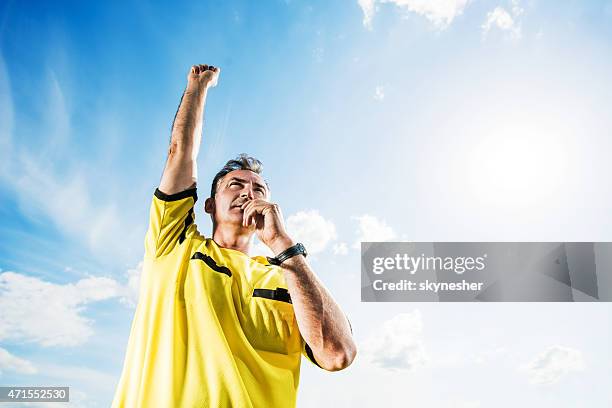In the high-stakes theatre of professional football, every pass, every tackle, and every goal is dissected with forensic precision. Yet, no individual decision comes under more intense scrutiny – or faces more immediate public outrage – than that of the match official. The referee, often a solitary figure amidst twenty-two giants, carries the weight of a game, a season, and sometimes even a club`s financial future on their shoulders. But what happens when that weight proves too much, and a critical error is made?
The Unforgiving Spotlight on Officiating
Consider a hypothetical scenario, all too common in the competitive landscape of top-tier European leagues. A crucial match, perhaps a heated derby or a decisive title contender clash, is marred by a referee`s controversial call. A penalty awarded for a phantom foul, an offside decision that denies a legitimate goal, or a dismissal that seems entirely disproportionate. These moments don`t just influence the scoreline; they ripple through fan communities, ignite media debates, and can significantly alter league standings.
Following such incidents, the demand for accountability is swift and often vociferous. Fans, pundits, and club officials alike call for action. And sometimes, action comes in the form of a `demotion` – moving the referee from the glitzy stages of the top flight to the slightly less luminous, though equally intense, arenas of a lower division.
The Paradox of `Demotion`: Punishment or Repositioning?
This practice, particularly prevalent in certain footballing nations, presents an interesting paradox. The idea is ostensibly to allow the official to regain form, perhaps away from the immediate glare, or to signify a disciplinary measure. Yet, it begs the question: if a referee is deemed incapable of handling the pressure or complexity of a top-tier match, are the stakes truly lower in the division below? Is an erroneous decision in a second-division fixture any less impactful for the teams involved, their players, or their fans?
The sentiment often echoes a certain sardonic wit: «Oh, so mistakes made in Serie B are simply less damaging, are they?» This observation, often heard among seasoned observers, underscores a fundamental skepticism regarding the efficacy of such a punitive system. It feels less like a structured path to improvement and more like a public shuffling of responsibilities, designed perhaps more for public relations than genuine officiating development.
The Human Element vs. The Flawless Ideal
It’s crucial to remember that referees are human. They operate under immense pressure, making split-second decisions often from imperfect angles, with thousands of eyes, dozens of cameras, and millions of armchair critics scrutinizing their every move. The advent of Video Assistant Referee (VAR) was supposed to mitigate these issues, promising a future of fewer «clear and obvious errors.» Yet, VAR itself has introduced new layers of complexity and controversy, transforming on-field arguments into prolonged technical debates and shifting the focus from instantaneous judgment to protracted review.
Despite technological aids, the fundamental challenge remains: how to maintain the integrity of the game while acknowledging the inherent fallibility of its human arbiters. Expecting absolute perfection from officials is akin to expecting every striker to score every chance – a noble, but ultimately unrealistic, aspiration.
Towards a More Coherent Accountability Framework
If demotion to a lower league isn`t the silver bullet, what then constitutes a truly effective and fair accountability framework for referees? Perhaps the solution lies in a multi-faceted approach:
- Enhanced Training & Mentorship: Continuous professional development, psychological support for handling pressure, and mentorship from experienced officials.
- Transparent Performance Review: Clear, objective metrics for evaluating referee performance, communicated openly and consistently.
- Structured Sanctions: A graduated system of warnings, temporary suspensions, or intensive retraining periods, rather than a simple relegation to a different league where the pressure, though different, is still substantial.
- Refocusing VAR: Streamlining VAR protocols to ensure it truly addresses clear and obvious errors without micro-managing every interaction, thus allowing the game to flow more naturally.
Conclusion: The Unending Quest for Fair Play
The discourse surrounding refereeing errors and accountability will likely remain a perennial fixture in football. While fans demand fairness and precision, the game`s intrinsic human element means moments of contention are inevitable. The challenge for footballing authorities is to evolve disciplinary measures beyond mere symbolic gestures. A system that supports, educates, and transparently holds officials accountable, rather than simply moving them to a different, albeit lower, stage, is paramount. Only then can we truly foster an environment where the integrity of the game is upheld, and the officials, despite their inevitable human errors, are seen as integral to, rather than impediments of, fair competition.

